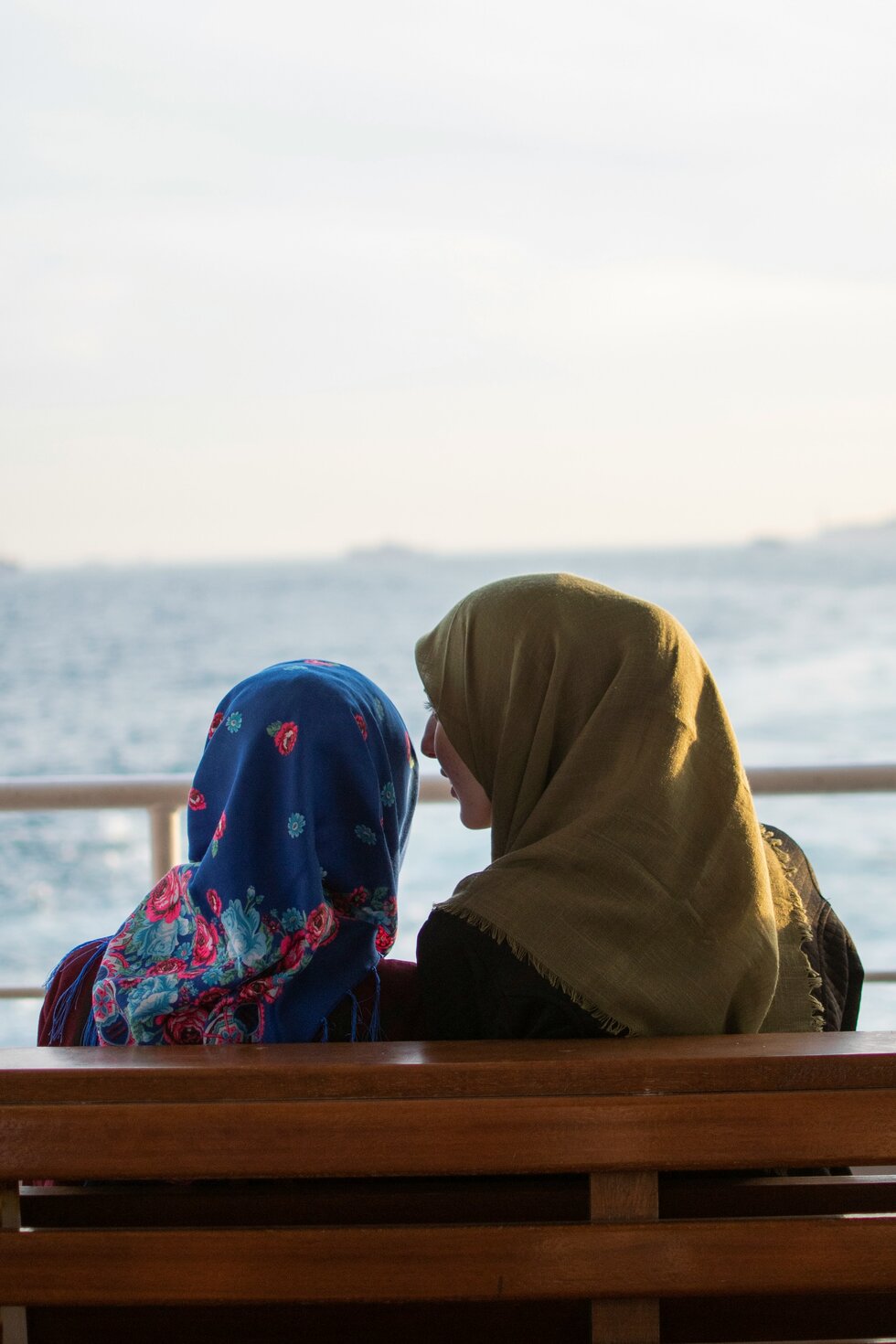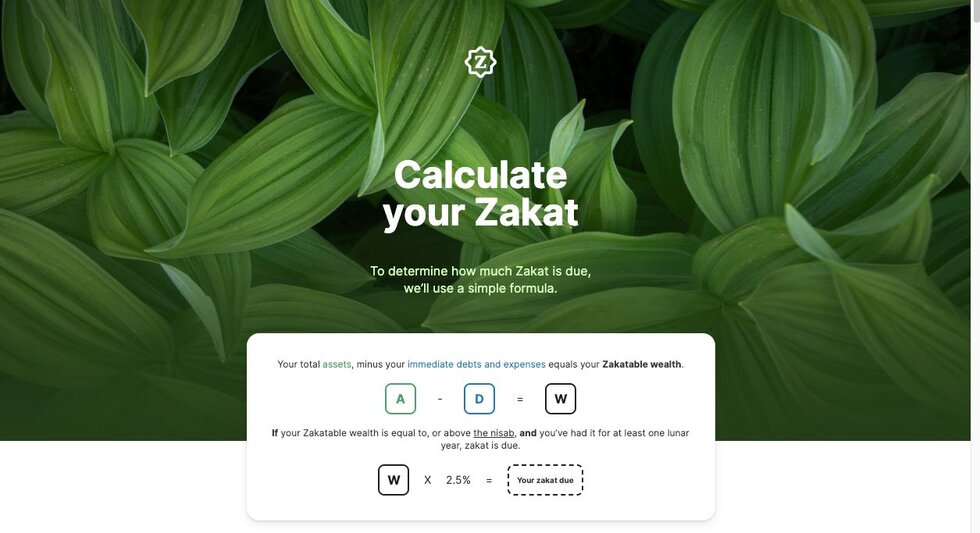Home
>
Ramadan Mubarak around the world
November 17, 2024
Ramadan Mubarak: How to wish and reply in Arabic and English
By Yusuf Jaffar
•
3 min read
Featured fundraisers
Discover 1.5K more
Ramadan is a blessed month that brings Muslims together in worship, reflection, and gratitude. Exchanging greetings like Ramadan Mubarak or Ramadan Kareem is a cherished tradition, symbolizing goodwill and blessings. Whether you want to learn how to greet someone in Arabic, respond appropriately, or welcome Ramadan with heartfelt expressions, this guide covers all aspects of Ramadan including:
1. Different ways of saying Ramadan mubarak in Arabic
Learn the Arabic phrases for Ramadan Mubarak and Ramadan Kareem, their meanings, and how to use them to spread blessings during this holy month.
2. Responses to Ramadan mubarak and Ramadan kareem
Discover polite and meaningful ways to reply when someone greets you with Ramadan Mubarak or Ramadan Kareem, along with appropriate Islamic phrases.
3. Welcoming Ramadan with heartfelt greetings around the world
Explore expressions and phrases to welcome Ramadan, emphasizing the spiritual joy and gratitude associated with the holy month from different Muslim countries around the world.
How to say Ramadan Mubarak in Arabic

There are several meaningful ways to express greetings like "Ramadan Mubarak" in Arabic, each carrying its own significance. These phrases are commonly used by Muslims to wish blessings, generosity, and spiritual growth during the holy month.
Ramadan mubarak (رمضان مبارك)
This means "Blessed Ramadan" and is one of the most widely used greetings to wish someone a blessed month.
Ramadan kareem (رمضان كريم)
This translates to "Generous Ramadan," emphasizing generosity and blessings.
Mubarak alaykum al-shahr (مبارك عليكم الشهر)
This means "May this month be a blessed one upon you," a warm phrase wishing blessings for the entire month.
Kul ‘aam wa antum bi-khayr (كل عام وأنتم بخير)
This translates to "May every year find you in good health." It is a versatile greeting used during Ramadan and other Islamic occasions.
Taqabbal allahu minna wa minkum (تقبل الله منا ومنكم)
This means "May Allah accept from us and from you," and is often exchanged after fasting or prayers to seek Allah’s acceptance.
Ramadan saeed (رمضان سعيد)
This means "Happy Ramadan," a cheerful way to wish someone a joyful and blessed month.
A’adahu allahu ‘alaykum bil-khayr wal-barakah (أعاده الله عليكم بالخير والبركة)
This translates to "May Allah return it to you with goodness and blessings," and is a formal and heartfelt way to wish blessings.
Allahumma ballighna Ramadan (اللهم بلغنا رمضان)
This means "O Allah, let us reach Ramadan." It is a supplication often made before or at the start of Ramadan.
These phrases beautifully capture the essence of Ramadan, emphasizing blessings, well-wishes, and spiritual aspirations. By using them, Muslims express the shared joy and significance of this sacred month.
Find Ramadan fundraisers below.
Responses to Ramadan mubarak and Ramadan kareem

When someone greets you with "Ramadan Mubarak" or "Ramadan Kareem," it’s a beautiful opportunity to respond with warmth and sincerity. These responses reflect gratitude, well-wishes, and the spiritual significance of the holy month.
Responses to "Ramadan mubarak"
Ramadan Mubarak to you too! This is the simplest and most common way to reply, and in Arabic, it is "Ramadan Mubarak lakum aydan!" (رمضان مبارك لكم أيضاً).
Thank you! Wishing you a blessed Ramadan as well! This shows mutual goodwill and can be expressed in Arabic as "Shukran! Atamanna lakum Ramadan mubarak aydan!" (شكراً! أتمنى لكم رمضان مبارك أيضاً).
May Allah bless us all during this holy month! This emphasizes collective blessings and is said in Arabic as "Barakallahu lana fi hadha al-shahr al-mubarak!" (بارك الله لنا في هذا الشهر المبارك).
The blessings of Ramadan be upon you too! This is a heartfelt reply, translated into Arabic as "Alaikum barakat Ramadan!" (عليكم بركات رمضان).
Jazak Allahu Khayran, Ramadan Mubarak to you and your family! This extends blessings to one’s family and is expressed in Arabic as "Jazak Allahu Khayran, Ramadan Mubarak lak wa li-‘a’ilatik!" (جزاك الله خيراً، رمضان مبارك لك ولعائلتك).
Responses to "Ramadan kareem"
Allahu Akram! This is the traditional response, meaning "Allah is even more generous." It is written as "Allahu Akram!" (الله أكرم).
Thank you! May Allah make this Ramadan generous for all of us. This highlights shared generosity and is said in Arabic as "Shukran! As’al Allah an yaj’al hadha al-Ramadan kareeman lana jami’an." (شكراً! أسأل الله أن يجعل هذا الرمضان كريماً لنا جميعاً).
Wishing you a spiritually fulfilling Ramadan as well! This conveys well-wishes for personal spiritual growth and is expressed in Arabic as "Atamanna laka Ramadan ruhiyan mufid aydan!" (أتمنى لك رمضان روحياً مفيداً أيضاً).
May Allah accept your fasting and prayers! This reflects the spiritual essence of Ramadan and is said in Arabic as "Taqabbal Allahu siyamak wa qiyamak!" (تقبل الله صيامك وقيامك).
Ramadan kareem to you and your loved ones! This is an inclusive reply, said in Arabic as "Ramadan Kareem lak wa li’ahlik!" (رمضان كريم لك ولأهلك).
General responses applicable to both greetings
Jazak Allahu Khayran, may this month bring peace and blessings to all of us. This expresses gratitude and is translated into Arabic as "Jazak Allahu Khayran, nas’al Allah an yajlib hadha al-shahr al-salam wal-barakat lana jami’an." (جزاك الله خيراً، نسأل الله أن يجلب هذا الشهر السلام والبركات لنا جميعاً).
Ameen, may Allah grant us all His mercy and forgiveness during this holy month. This is a spiritual response, said in Arabic as "Ameen, nas’al Allah an yamnahna rahmatahu wa maghfiratahu khilal hadha al-shahr al-mubarak." (آمين، نسأل الله أن يمنحنا جميعاً رحمته ومغفرته خلال هذا الشهر المبارك).
For both me and you, may we benefit from this blessed month. This emphasizes mutual blessings and is expressed in Arabic as "Alayna wa ‘alaykum, nas’al Allah an nastafeed min hadha al-shahr al-mubarak." (علينا وعليكم، نسأل الله أن نستفيد من هذا الشهر المبارك).
May Allah reward you for your kind words. This is a grateful reply, said in Arabic as "Jazak Allahu Khayran ‘ala kalimatika al-tayyibah." (جزاك الله خيراً على كلماتك الطيبة).

Welcoming Ramadan with heartfelt greetings around the world
Ramadan greetings reflect the linguistic and cultural diversity of Muslim communities worldwide. While the essence of wishing blessings, generosity, and spiritual growth remains universal, the expressions vary by language and region. Here are some popular Ramadan greetings from different parts of the globe:
Indonesia Selamat menunaikan ibadah puasa translates to "Wishing you a happy fasting month." It is a formal and warm way to greet someone during Ramadan. Selamat berpuasa is a shorter version that simply means "Happy fasting." Marhaban ya Ramadan means "Welcome, O Ramadan" and is used to express excitement for the holy month.
Turkey
Hayırlı Ramazanlar means "Auspicious Ramadan" and is a commonly used greeting.
Ramazan ayımız mübarek olsun translates to "May our month of Ramadan be blessed."
Allah kabul etsin means "May Allah accept [your fasts]" and is often said to encourage and support fasting individuals.
Pakistan and India (Urdu/Hindi)
Ramzan mubarak is a localized version of "Blessed Ramadan," reflecting the linguistic traditions of South Asia.
Chaand mubarak, meaning "Blessed Moon," is used when the crescent moon is sighted to mark the beginning of Ramadan.
Malaysia
Selamat berpuasa means "Happy fasting" and is the most common greeting in Malaysia.
Semoga Ramadan anda diberkati translates to "May your Ramadan be blessed" and is often used in formal contexts.
Morocco
Mubarak Ramadhan is a blend of Arabic and local dialect that means "Blessed Ramadan."
Traditional suhoor callers, known as Nafars, often accompany greetings with prayers for blessings during the pre-dawn meal.
Egypt
Ramadan kareem, meaning "Generous Ramadan," is the most commonly used greeting in Egypt.
The Mesaharaty, or night caller, may personally greet families while waking them for suhoor, adding a personal touch to the tradition.
West Africa (Hausa)
Barka da azumi means "Blessings of fasting" in Hausa, a language widely spoken in Nigeria and surrounding countries.
East Africa (Swahili)
Ramadhani njema translates to "Happy Ramadan" in Swahili, spoken in Kenya, Tanzania, and other parts of East Africa.
Iran (Persian/Farsi)
Ramazan mobarak means "Blessed Ramadan," similar to the Arabic greeting but with a distinct Persian pronunciation.
Join our newsletter
Join our community of 700k subscribers
Explore more